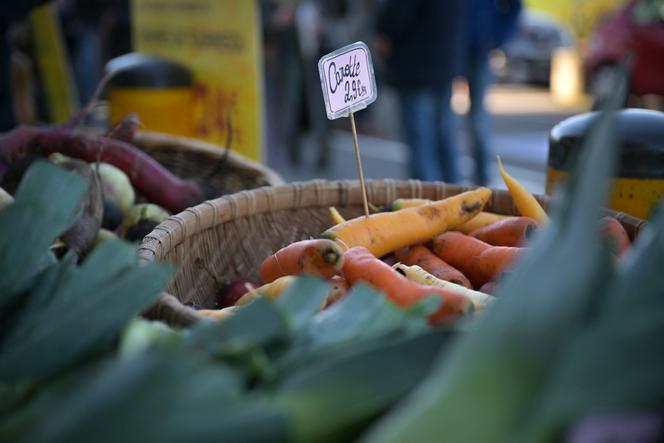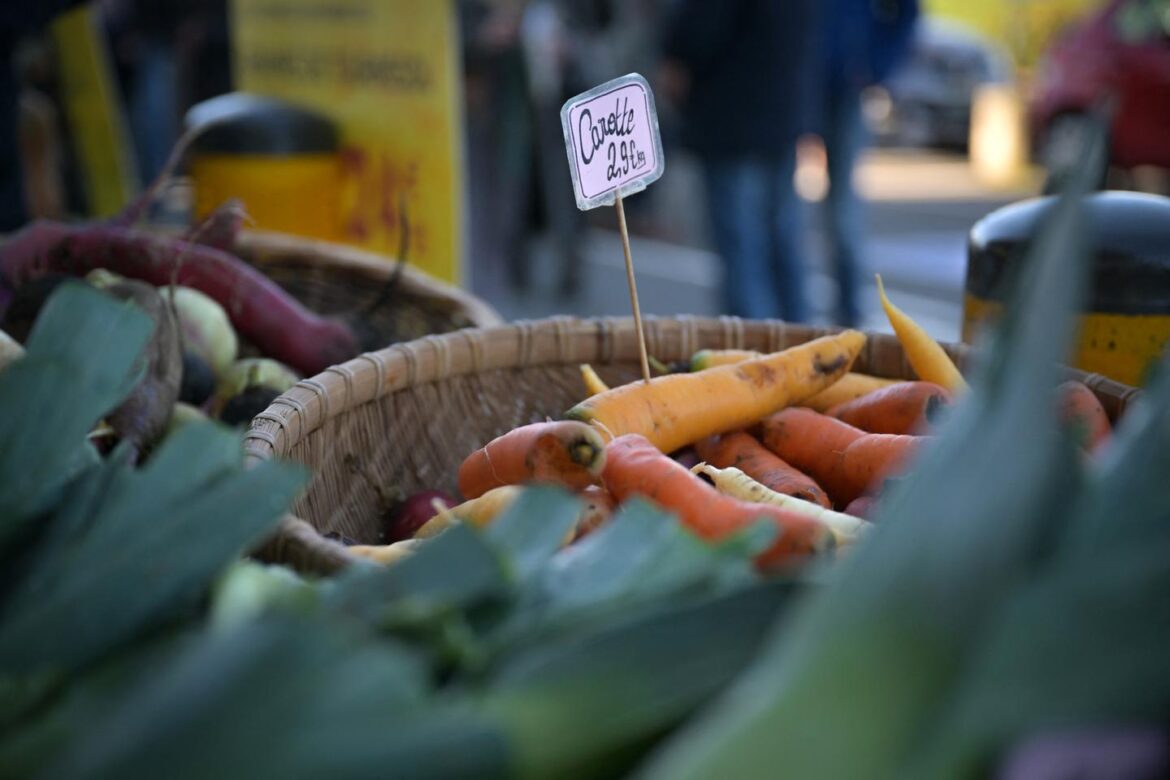 At the market in Condé-sur-Sarthe, Normandy, January 31, 2024. LOU BENOIST / AFP
At the market in Condé-sur-Sarthe, Normandy, January 31, 2024. LOU BENOIST / AFP
At the start of the 20th century, French textile workers’ daily meals consisted of boiled potatoes and cottage cheese spread on thick toast. At the time, food accounted for more than half of household budgets. The economist Jean Fourastié described this in his famous 1979 book Les trente glorieuses (“The glorious thirty”), which coined the nickname for the 30 years of growth in France after the Second World War. A century later, food accounts for 14% of household spending, according to 2021 data from the national statistics institute, INSEE.
Does this mean that in France, the country of 365 cheeses, people would rather pay for a Netflix subscription than to eat properly? On February 24, at the Paris Agricultural Show, President Emmanuel Macron vigorously denied he had suggested just that. The local daily La Marseillaise had reported that in a meeting with farmers’ representatives, Macron had said that people earning minimum wage “prefer VOD subscriptions to healthier food.”
But Macron had immediately added: “The problem we have in our country today is that the share of income that French people allocate to food has fallen over the last 30 years.” He went on: “People are spending more on housing, telephone subscriptions, travel and television. Lifestyles have changed, and they spend proportionately less on food.” The report earned Macron accusations of “class contempt” from the left and the far right.
You have 77.53% of this article left to read. The rest is for subscribers only.

